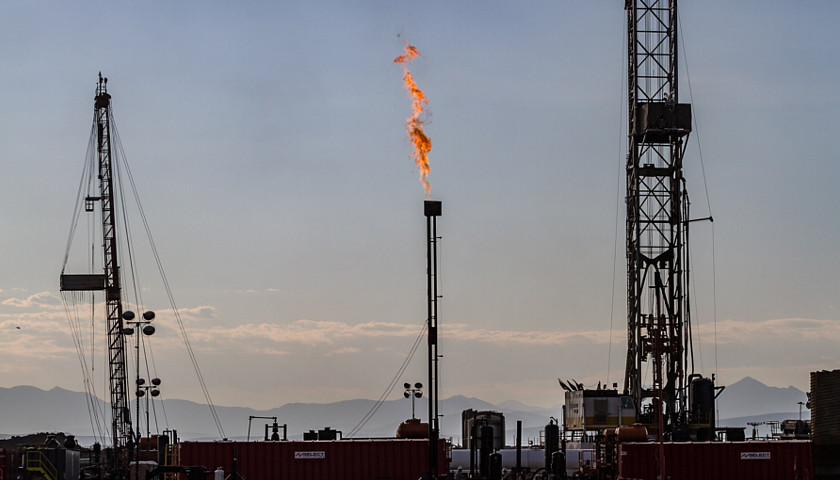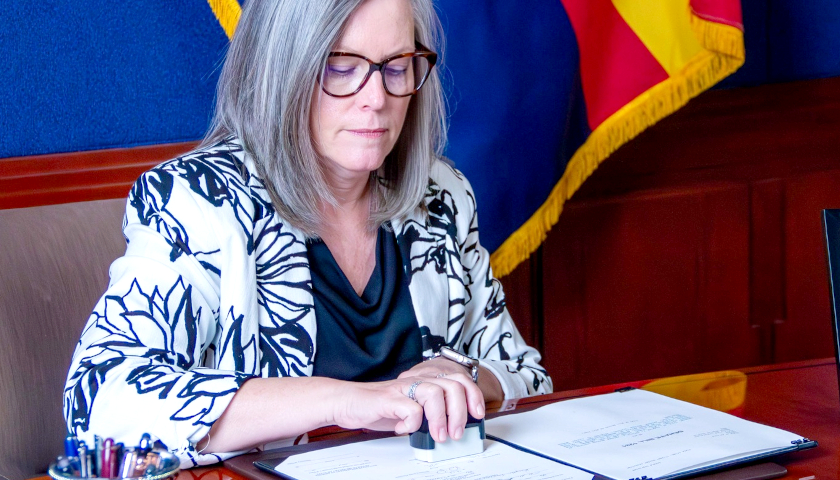by Derek Draplin
Berthoud and Broomfield are the latest local governments in Colorado to implement a moratorium on oil and gas development following passage of new industry regulations signed into law last month.
The Colorado Oil and Gas Conservation Commission, the state’s regulatory body, issued “objective criteria” that will require additional review of drilling permits, potentially delaying development projects across the state.
The criteria includes any applications for oil and gas within a municipality, locations within 2,000 feet of a school, locations within 2,000 feet of occupied buildings, and locations within floodplains or water resource areas.
COGCC will now be able to use the 16 criteria to delay permit approvals.
“The Director [Jeff Robbins] may delay specific permit determinations until the Director is satisfied that the permit complies with the intent of SB 19-181. If the Director determines that a permit meets the intent of SB 19-181, the Director may approve the permit prior to completion of the referenced rulemakings,” guidance on the criteria said.
The bill, signed by Gov. Jared Polis last month, changes the commission’s mission to prioritize environment, health and safety over industry development.
The new law also gives local governments more say in regulating the oil and gas industry.
Local governments across the state have wasted little time putting moratoriums on oil and gas development while the COGCC continues to reorganize in compliance with the new regulations.
The regulations came after Colorado voters rejected Proposition 112 in November. The measure would have created a buffer zone between occupied buildings and energy development.
Berthoud, which lies within both Larimer and Weld Counties, this week halted oil and gas development permits. Broomfield, which is also a county, also approved a 6-month moratorium on oil and gas development applications.
Despite the move, Berthoud Mayor Will Karspeck told the Loveland Reporter-Herald that the town doesn’t have any active permit proposals for development at the moment.
“I don’t want anyone to think we’re using a suspension as a way to delay anything; it’s just good to have control,” he told the Reporter-Herald. “We have the ability to control the looks, possibly the setbacks and other things, and now’s the time to do it, since there’s no one we’re really holding up. And I think the desire by the community is there.”
Larimer County last month formed a task force to explore creating its own oil and gas land use regulations. Weld County, the state’s top energy-producer, was opposed to the new industry regulations.
Other local governments didn’t wait for SB 181 to pass before passing oil and gas moratoriums.
Erie, in Boulder and Weld Counties, extended a moratorium in January, while Superior, in Boulder County, passed a 6-month moratorium in the same month.
Lafayette, also in Boulder County, extended its moratorium on the same day Polis signed SB 181.
Adams County, one of the most populous in the state, initiated a moratorium in March.
Kelly Sloan, an energy and environment policy fellow at the Centennial Institute, said one of the concerns about SB 181 was that permits would be halted, something that’s coming to fruition with more local governments approving moratoriums.
“Some of these more left-leaning city councils and county commissions are flexing their muscle a little bit and basically trying to see what they can get away with,” he said. “The biggest question is going to be how is the industry going to react?”
“What proponents of the oil and gas industry were saying all along was that this bill was an effective ban, or could be a ban, and I think that’s coming to fruition now,” Sloan added.
Environmental activists argue all oil and gas permitting should be halted altogether until the commission is fully in compliance with the new law.
“Due to the passage of SB 181, state regulators are obligated to protect public health and safety in the permitting process. That obligation extends to rulemaking and regulators need to pump the breaks on permitting before irreparable damage is done,” Colorado Rising’s communications director Anne Lee Foster said in a statement before the commission’s guidance was released.
“The current set of regulations has no basis in health and safety and the state owes the people of Colorado the due diligence to fully examine the existing health impact data to ensure new extraction is done in a manner that accounts for all potential impacts, including the cumulative impacts to our climate,” she said.
The group, along with several others, sent a letter to Polis, the Colorado Department of Public Health, and COGCC, “notifying the administration of the need to pause oil and gas permitting.”
S&P Global Ratings said last month that it was too early to tell how the new oil and gas regulations would fiscally impact local governments, but that it didn’t expect any statewide impacts to credit ratings.
“As of now, the fiscal impact to local governments statewide is indeterminable, as we cannot anticipate which cities and counties will adopt local governing rules as a result of SB-181, and whether those local governments will have significant oil and gas activity,” S&P Global Ratings said.
– – –
Derek Draplin is the Regional Editor for the Great Plains at The Center Square. He previously worked as an opinion producer at Forbes, and as a reporter at Michigan Capitol Confidential and The Detroit News. He’s also an editor at The Daily Caller.





